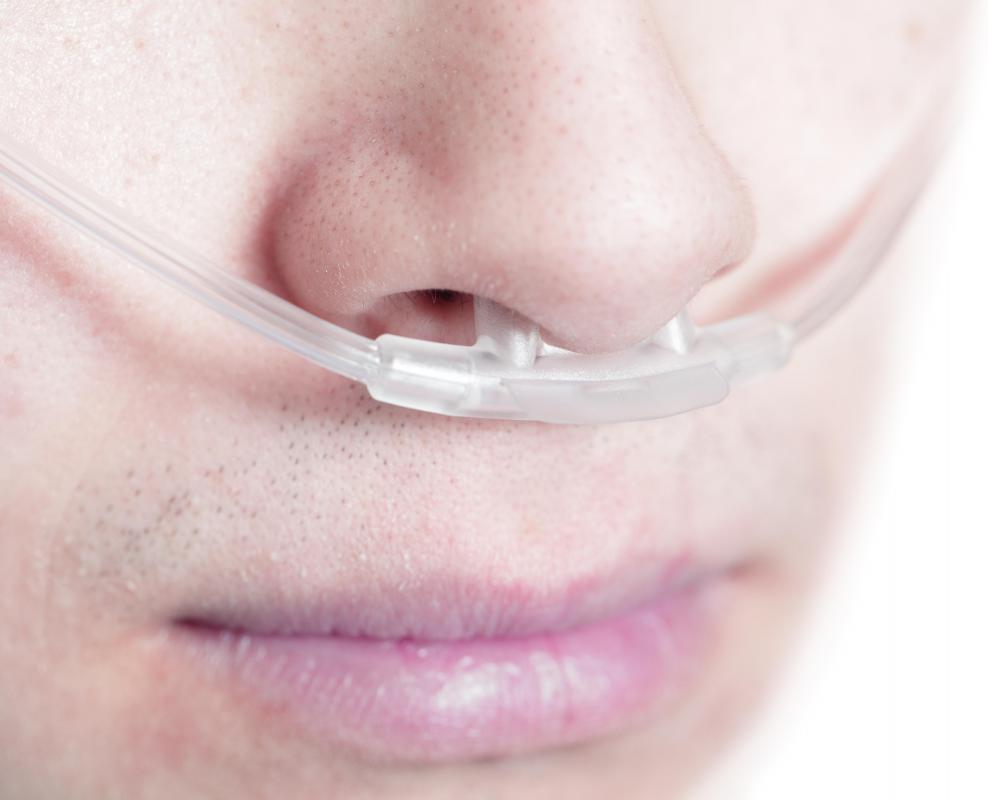At WiseGEEK, we're committed to delivering accurate, trustworthy information. Our expert-authored content is rigorously fact-checked and sourced from credible authorities. Discover how we uphold the highest standards in providing you with reliable knowledge.
What Is a Hypoxia Inducing Factor?
Hypoxia-inducible factor (HIF) is a component in mammalian cells that responds to reduced oxygen levels in the body. It is part of the system that allows cells to respond to stress with adaptive measures to help the body survive. When cells sense a drop in oxygen levels, they can respond in several ways to compensate until oxygen concentrations rise again, or the organism is no longer able to cope with the lack of oxygen and tissue death begins to occur. Research on hypoxia-inducible factor takes place in facilities at academic institutions, private companies, and nonprofit organizations with an interest in cellular processes.
Numerous situations can result in hypoxia, a state of abnormally low oxygen saturation in the blood. Some forms are caused by not breathing in enough oxygen because of poor respiration or other issues. Others occur when processes in the body block oxygen, which is seen with carbon monoxide poisoning, or when a patient has anemia, which limits the number of red blood cells in circulation. In all cases, the drop in oxygen levels can be dangerous for the patient, as the body's cells need oxygen to function.

This part of the cell's stress response mechanism is a transcription factor. When it's activated, hypoxia-inducible factor changes the way the body transcribes genetic material, coding for an adaptive response to the drop in oxygen levels. As the sensors in the hypoxia-inducible factor notice a drop in oxygen, they stimulate the body to produce more red blood cells to carry what oxygen is available, in the hopes of making up for the decline.

In addition to triggering an increase in red blood cell production, hypoxia-inducible factor has been implicated in cell death. Cells may die under stress as part of a response to keep the organism as a whole functional. Some cartilage cells, for example, may degrade and break down during an episode of hypoxia. This conserves the available oxygen so it can be routed to critical cells in the body which need to retain full functionality.

Research into hypoxia-inducible factor looks at when this factor activates and how it acts within the cells. This information can help with the development of treatments for hypoxia, as well as tests doctors can use to monitor patients with low oxygen levels or a history of hypoxia. Like other factors, it can be sequenced to find out how it is constructed, and what shape it takes inside the cells.
AS FEATURED ON:
AS FEATURED ON:
















Discuss this Article
Post your comments